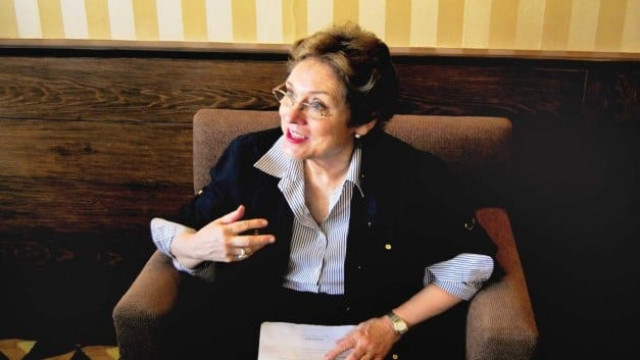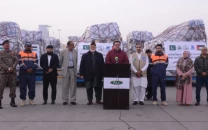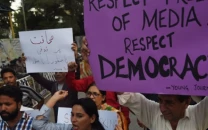Tell it all, urges US communications expert

Her job is making sure, whether good or bad, that the story gets out. “A really strong media does not depend on the journalist but on the machinery that takes out messages,” she says. She is in Pakistan on a one week tour conducting workshops on better communication, crisis coverage and media campaigning. Over the past few days she has met students from the National University of Modern Languages, Islamic International University and held daily meetings with employees from the ministry for information and broadcasting.
After her trip to Islamabad, Sullivan told The Express Tribune that she felt this message was important: every communication office requires a clear process. Sullivan, who has worked as a communications director for the US government, says briefings are a good idea as otherwise rumours and misinformation can spread. Her mantra is to tell it all, tell it yourself and tell it first even when there is bad news. “The Pakistani media is robust,” she says. “You have more 24-hour news channels in Pakistan than we do in the US! There is a lot of news.”
But she says the organisations and governments have not learned how to use all the resources that are available to them. “Pakistan has 60 per cent cellular phone penetration. I do not think that its potential has been realised by the government. They can reach citizens and citizens can talk back.” According to Sullivan, digital media holds a world of possibilities including e-government. She says egovernment is an interactive platform which allows voters to be informed.
“The public needs to be good consumers, particularly today, in the generation of citizen journalists,” she says. Sullivan will be conducting workshops with NGOs, political groups and members of the local government on how on how to get the news cycle to work for them. Separately, Pakistan Musim League-Nawaz spokesperson Siddiqul Farooq, while talking to The Express Tribune, said the Pakistani communication matter is clear as night and day. He claims it is the responsibility of the ministry for information and broadcasting to brief the public.
Former minster for interior Aftab Ahmed Khan Sherpao says, however, that things are not so simple. He says each ministry makes its own statement and warns that as they can sometimes overlap, “contradicting statements can land the government in hot soup.” He also said that the current interior ministry has a tendency to make off-thecuff statements, which is why during his government there used to be regular briefings.


















COMMENTS
Comments are moderated and generally will be posted if they are on-topic and not abusive.
For more information, please see our Comments FAQ